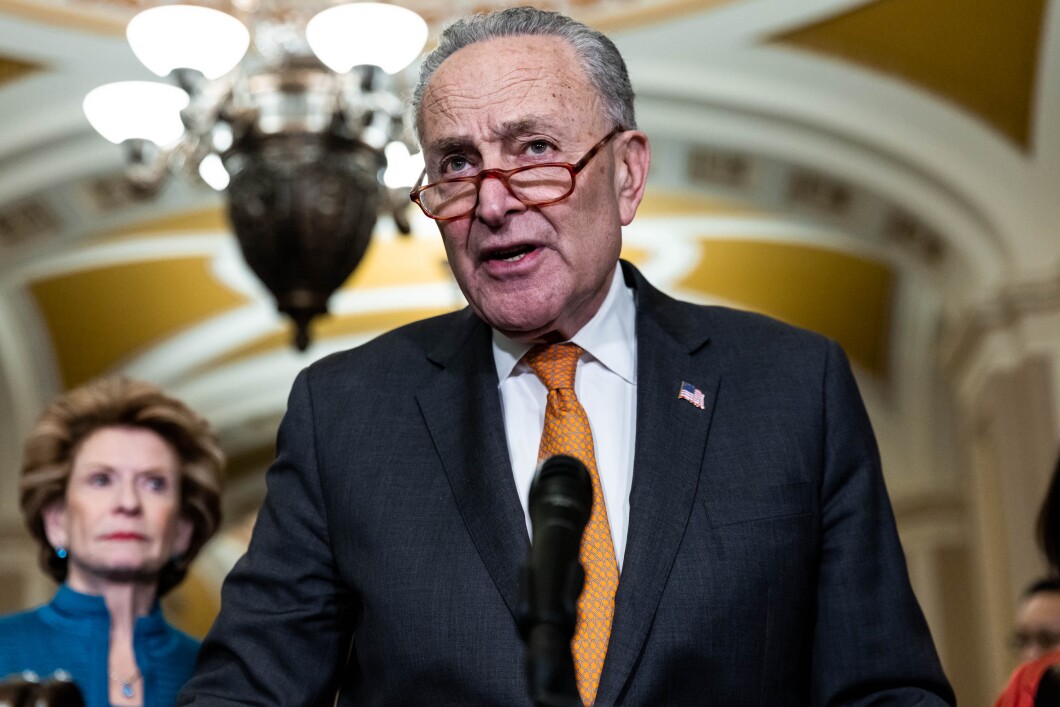
As House Republicans spar with the Biden administration and pass a bevy of messaging bills, the Democratic-controlled Senate is off to a much slower start. Four weeks into the 118th session of Congress, the upper chamber has taken just a few votes and is only now organizing its committee rosters, foreshadowing what could be an unproductive two years.
Senators appear to be lowering expectations for a legislative session in which the chamber may not advance much beyond must-pass bills, such as raising the debt limit and the National Defense Authorization Act. The plodding pace could mark a contrast to the previous session, in which Democrats racked up a series of legislative accomplishments when they had control of both chambers.
BITTERLY DIVIDED SENATE FINDS COMMON ENEMY IN DOJ ‘STONEWALLING’ ON CLASSIFIED DOCUMENTS
“The fact of the matter is, other than nominations, it’s going to be a slow couple of years, I think, unless we can find some areas where we can work on in the House and the Democratically controlled Senate and Democrats in the White House,” said Sen. John Cornyn (R-TX), an adviser to the GOP leadership team. “It remains to be seen if folks have an appetite to do that.”
The Senate will approve resolutions organizing committees Thursday after Minority Leader Mitch McConnell (R-KY) finally released Senate GOP committee assignments, nearly a month into the new term.
The delay was caused in part by a Senate Republican conference precedent that keeps senators from the same state from serving on a committee together without one getting a waiver. Last week, the conference voted down a bid from freshman Sen. Eric Schmitt (R-MO) to get a waiver to serve on the Judiciary Committee with fellow Missouri Sen. Josh Hawley (R).
The move would have booted a more senior member, such as Sens. Marsha Blackburn (R-TN) or Thom Tillis (R-NC), from the prestigious panel.
Republican Whip John Thune (R-SD) admitted there were “several hiccups” during the process but didn’t elaborate on what played out. Republicans determine their assignments by having each senator rank their preferences; seniority and rankings are also considered.
“It has to do with how they rank their committee choices, A, super A, B, C. It’s a fairly complicated and heavily weighted process. So, when somebody decides to make a decision at some place, it re-triggers the entire chart. So, that’s had to happen a couple of times now,” Thune explained to reporters on Tuesday afternoon.
The slow start was compounded by a two-and-a-half-week recess the Senate took immediately after swearing in members.
The light floor schedule hasn’t stopped senators from holding press conferences and a few hearings. The Senate Intelligence Committee has been receiving briefings, with new members joining in even before leadership formally announced committee assignments.
And the Senate Judiciary Committee is expected to move quickly to prepare floor votes for holdover nominees now that Schumer has a clear majority in the chamber, rather than relying on Vice President Kamala Harris to break any 50-50 ties.
The House got off to a slow start of its own due to the drama over Kevin McCarthy’s (R-CA) speakership bid. But Republican leadership has since passed a series of bills on everything ranging from China to closing the door on the COVID-19 pandemic, and two key committees, Oversight and Judiciary, have for weeks engaged in a back-and-forth with the Biden administration over the president’s mishandling of classified documents.
Outrage over stonewalling by the Justice Department has sparked bipartisan outrage in the Senate, where members of the Intelligence Committee are demanding more information on document scandals that have ensnared not only President Joe Biden but also former President Donald Trump and former Vice President Mike Pence.
Yet on the Senate floor, not much of substance has come before the chamber. The Senate cast its fourth vote of the year Wednesday, approving a resolution naming January as National Trafficking and Modern Slavery Prevention Month. Senators also voted to confirm two nominations and designate January as National Stalking Awareness Month. Through unanimous consent, it congratulated the University of Georgia football team on winning the NCAA championship and recognized “the contributions of Catholic schools.”

Schumer said the slow pace is not indicative of how the next two years will play out when asked by reporters on Wednesday.
“It’s only our second week in session since we didn’t come back until the 19th. The Republican processes are a little bit more cumbersome than ours,” he said. “We’ve been ready for a week and a half.”
In the last session, Democrats were able to usher through Congress legislation such as the Inflation Reduction Act and a bipartisan bill on gun control.
Behind the scenes, several Senate aides say pursuing any meaningful legislation on issues dividing lawmakers along party lines will be difficult to move through the upper chamber this term. Some said they don’t intend to draft or introduce certain bills without some kind of buy-in from the House and may wait and see what the lower chamber is able to pass.
“That’s a practical answer because it doesn’t make any sense for us to do something with 60 votes over here that the House won’t take up,” Cornyn said, confirming the strategy to the Washington Examiner.
“It makes more sense if the House is able to move something; then we can see how we can get 60 votes over here and get something to the president. I remain hopeful we will be able to do that,” he added, “maybe not on a big sort of, you know, change-the-fate-of-Western-civilization type of legislation but a more narrow shot.”
Thune said the slow pace of the upper chamber’s work is a dynamic that comes with divided government. Additionally, he thinks Democratic leadership may not want to take legislative risks ahead of what is expected to be a tough election cycle in 2024, when nearly half of the Democratic caucus is up for reelection.
“The more legislation they put on the floor, the more opportunity to offer amendments and the more tough votes those folks have to take,” Thune told reporters on Tuesday. “I think there’s a political dynamic here that is certainly also a factor in Democrats’ calculations about what they want to do here.”
CLICK HERE TO READ MORE FROM THE WASHINGTON EXAMINER
Jon Reinish, a Democratic strategist and former aide to Sen. Kirsten Gillibrand (D-NY), said he doesn’t think Democratic leadership would sacrifice their legislative agenda just to protect vulnerable incumbents.
“The Senate isn’t exactly grease lighting — it always tends to be a game of hurry up and wait. Yes, there are vulnerable Democratic senators in red states who are up for reelection. That said, there are parts of Senate Democrats’ legislative agenda that are broadly popular and that transcend partisan affiliation,” he said.
Additionally, Reinish added Schumer is very purposeful in his actions and has a firm command of his conference.
“He famously speaks to every one of them on his flip phone every day,” Reinish said. “He has run the political arm of the caucus enough times to know what’s a good vote for Sherrod Brown and what’s a good vote for Jon Tester and for Joe Manchin. He is extremely receptive to those concerns.”







